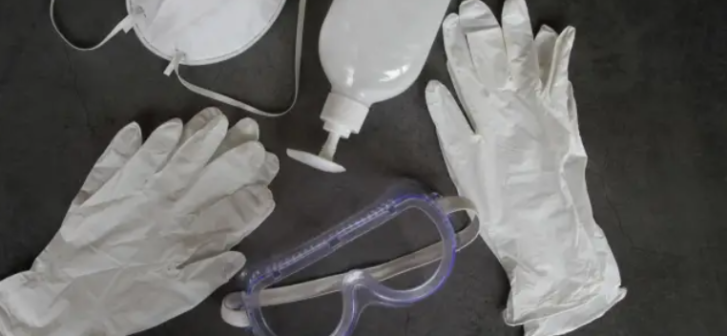Canada wasn’t ready for the COVID-19 pandemic. That’s the conclusion of experts, health-care workers and even the Auditor General.
And during the 2021 federal election, parties have pledged to make sure we’re prepared for the next pandemic – though experts warn this could be trickier than politicians make it out to be.
“I don’t think anybody’s ever really completely ready for a global pandemic,” said Dr. David Dushenski, chief of the emergency department at Toronto’s Mount Sinai Hospital.

Early on in the pandemic, he said, there were actually fewer people visiting his emergency room than normal, but worries about staffing and supplies were paramount.
“Obviously early in the pandemic, PPE was a major issue for us and there was a lot of stress and anxiety about whether we were going to be able to source and supply that,” he said.
Dr. Leon Rivlin, chief and medical director of emergency medicine at Toronto’s Humber River Hospital, echoed the early concerns about personal protective equipment.
“We certainly weren’t prepared,” he said. “But I think that the preparation was so far removed from where we needed to be that we didn’t even know what we needed to do to be prepared. We weren’t sure if we had to mask ourselves, that we had to wear visors. We didn’t know.”
In Canada, said Raywat Deonandan, an epidemiologist and associate professor at the University of Ottawa, surveillance systems didn’t react to the imminent threat of COVID-19 as they should have.
“Clearly we had the capacity here in Canada to detect that level of signal and it didn’t make it up the chain of decision making,” he said.
Canada’s Auditor General came to the same conclusion.
In a report tabled in March 2021, the Auditor General noted that the government’s Global Public Health Intelligence Network didn’t issue an alert in response to early reports of the virus. Information-sharing between organizations was also poor, the report noted, and the government hadn’t tested many of its emergency response systems in a long time.
“The Public Health Agency of Canada was not adequately prepared to respond to a pandemic, and it did not address long-standing health surveillance information issues prior to the pandemic,” the Auditor General wrote.
Global News has asked Health Canada to provide updates on how the government has analyzed and improved its pandemic response capabilities, but the department was unable to provide a response by deadline.
Canada’s federal system, which gives a lot of health care decision-making to the provinces, was also a liability in this case, said Dr. Lynora Saxinger, an infectious diseases specialist at the University of Alberta.
“To some extent, it felt like every province was re-creating the wheel in slightly different versions and people were getting just ground down, I think, with a lot of duplicated effort and a lot of slightly different conclusions that the populace tended to find bewildering.”
Prevention plans
While the Liberals in their platform are focusing on responding to the current pandemic, other parties are looking at how to prevent the next one.
The Conservatives have pledged to revisit the National Emergency Stockpile and ensure it has PPE and other supplies necessary for health emergencies. They also promise to augment Canada’s domestic vaccine production capacity and PPE manufacturing capacity.
The NDP is also promising to improve Canada’s vaccine and PPE production capacity, as well as improve the National Emergency Stockpile and disease surveillance systems.
The Green Party is promising these things as well, in addition to conducting a public inquiry into Canada’s pandemic response.
While he welcomes investment in vaccine manufacturing, Deonandan believes a big barrier to pandemic response is communication and public acceptance of interventions.
“Technologies alone have never solved situations like this, it’s always been about political will and public compliance,” he said.
There’s room for national leadership on pandemic prevention, though, he added.
“The countries that did this well have three things in common. Number one, they got really good at case detection and testing and tracing. Number two, they acted early and hard. And number three, they monitored their borders for importing, reinfection. So two of those three, if not all three, are federal mandates.”
The effect COVID-19 had on Canadian society was “far more profound” than even 9/11, Deonandan said, with divisions arising in society and even within families.
“In many ways, we’re going to have a pre and post-COVID world,” he said. “The question is, what leader will arise to seal those schisms or at least to understand that we need bridges across those gaps?”
We can’t prevent the next pandemic, Deonandan said, just like we can’t prevent many natural disasters, but we can change what happens after.
“The goal is not to prevent this. It is to prevent it from affecting us.”
–With files from Jamie Mauracher, Global News
Article From: Global News
Author: Leslie Young

